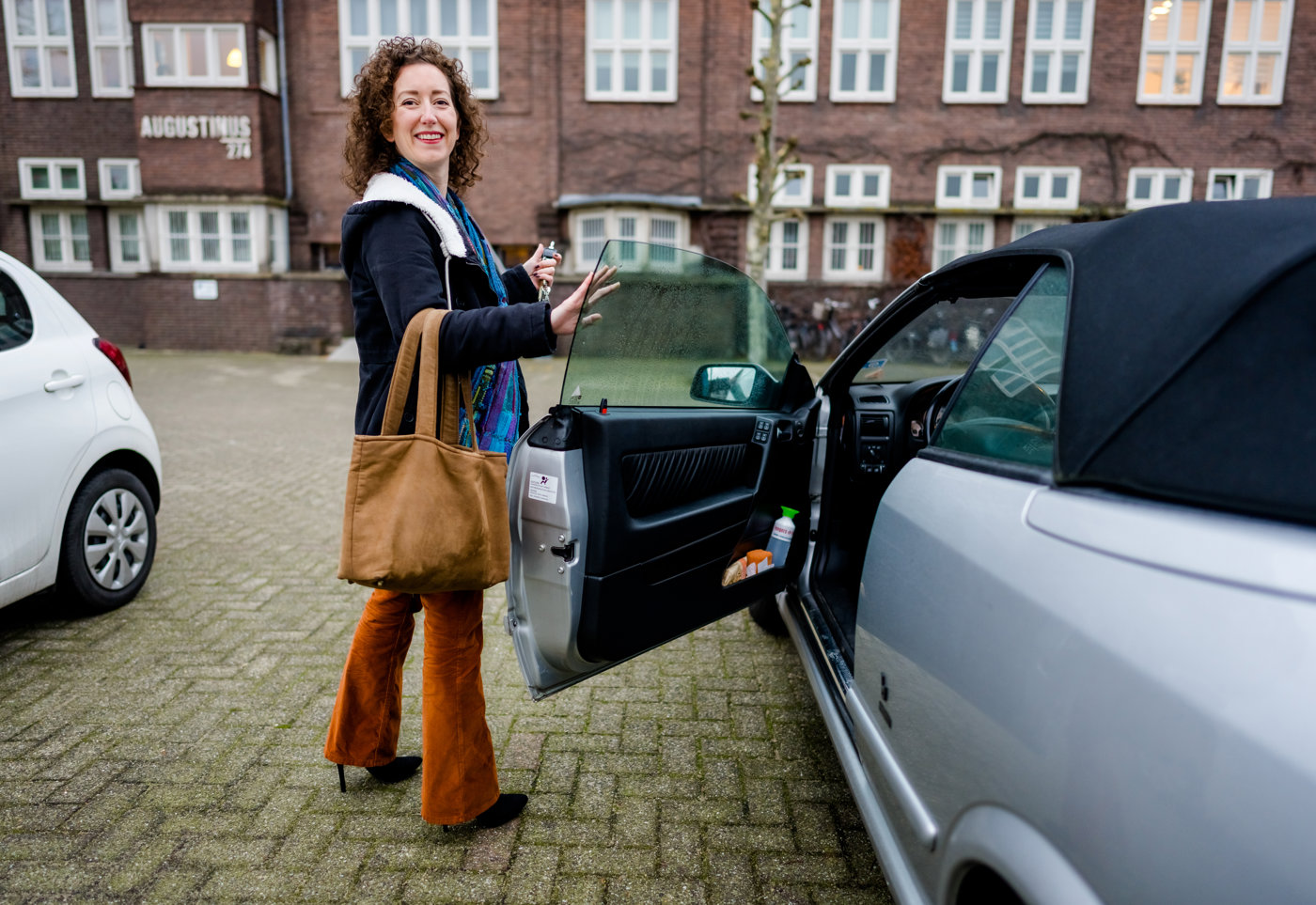How do you deal with work and money for now and in the future? Do you live from day to day or are you deliberately planning your financial future? And do you arrange ‘later’ yourself or are you participating in a pension fund?
Silvia Bogers (40) made the conscious decision not to have a joint bank account with her husband.
Silvia Bogers (40)
Profession: Business coach
Weekly works: 45 to 50 hours
Income: Pays herself a monthly income of 1950 euro
Savings: 10,000 private, 18,000 business
Pension is arranged? Not yet really
What kind of work do you do?
“I have been an entrepreneur since 2014. That was not an instant success: the plan was to sell handmade bags - I believe I sold two. No surprise really; I didn't really know what I was doing, it was doomed to fail. I then started working as a software consultant. That was great, earning me a rather nice salary. In my last year I achieved a turnover of 127,000 euro, 120,000 of which in profit. And that with an average workweek of three days.”
So why did you choose to start doing something else?
“The work made me very happy for a long time, until it didn't anymore. I worked for healthcare institutions quite a lot and the lack of drive in that world started to annoy me immensely. I wanted to optimize cumbersome systems, for example, but was told they rather kept everything the way it was ‘because they only had to work for another fifteen years until retirement’. I started my current company as a business coach in 2019, as I was looking to make a more direct impact. Now I help other coaches and therapists to make their practice more successful. This makes me intensely happy.”
How many hours do you work?
“Forty-five to fifty hours. I worked in places where twenty hours of work used to be exhausting, but the work I am doing now actually gives me energy. I go to the office every day with immense pleasure. Just let me do my thing, I enjoy it way too much. I never work weekends, but I make long hours during the week. I consider myself an employee of my own company and want to earn the title of ‘employee of the month’ every time again.”
How much do you earn?
“Last year, the second full year in my new company, I realized a turnover of nearly 125,000 euro. I think an amount of 70,000 euro can be booked as profit. I pay myself a monthly salary of 1950 euro.”
Are you satisfied with that income?
“Yes, I am absolutely happy with that income. It was enough for last year. Next year, I want to realize a turnover of 500,000. The foundation is established, I have learned a lot and become increasingly better in what I do. A turnover of 350,000 euro, my original plan, would no longer be a challenge for me. Upon encouragement of my own business coach, I have therefore set that goal of 500K.”
How were you able to increase your turnover this quickly?
“I started working smarter. Scalability is a great way to spend your hours more lucratively. I provide online training for start-up entrepreneurs, for instance, partially providing me with passive income. The training has been developed and finalized and can be sold endlessly without considerable extra time and effort. Increasing your rates throughout the year also helps.”
